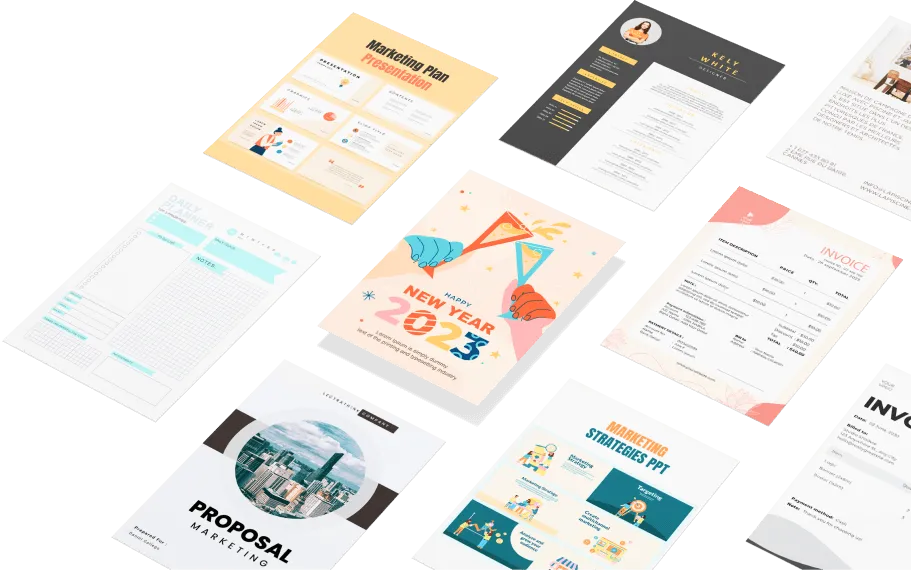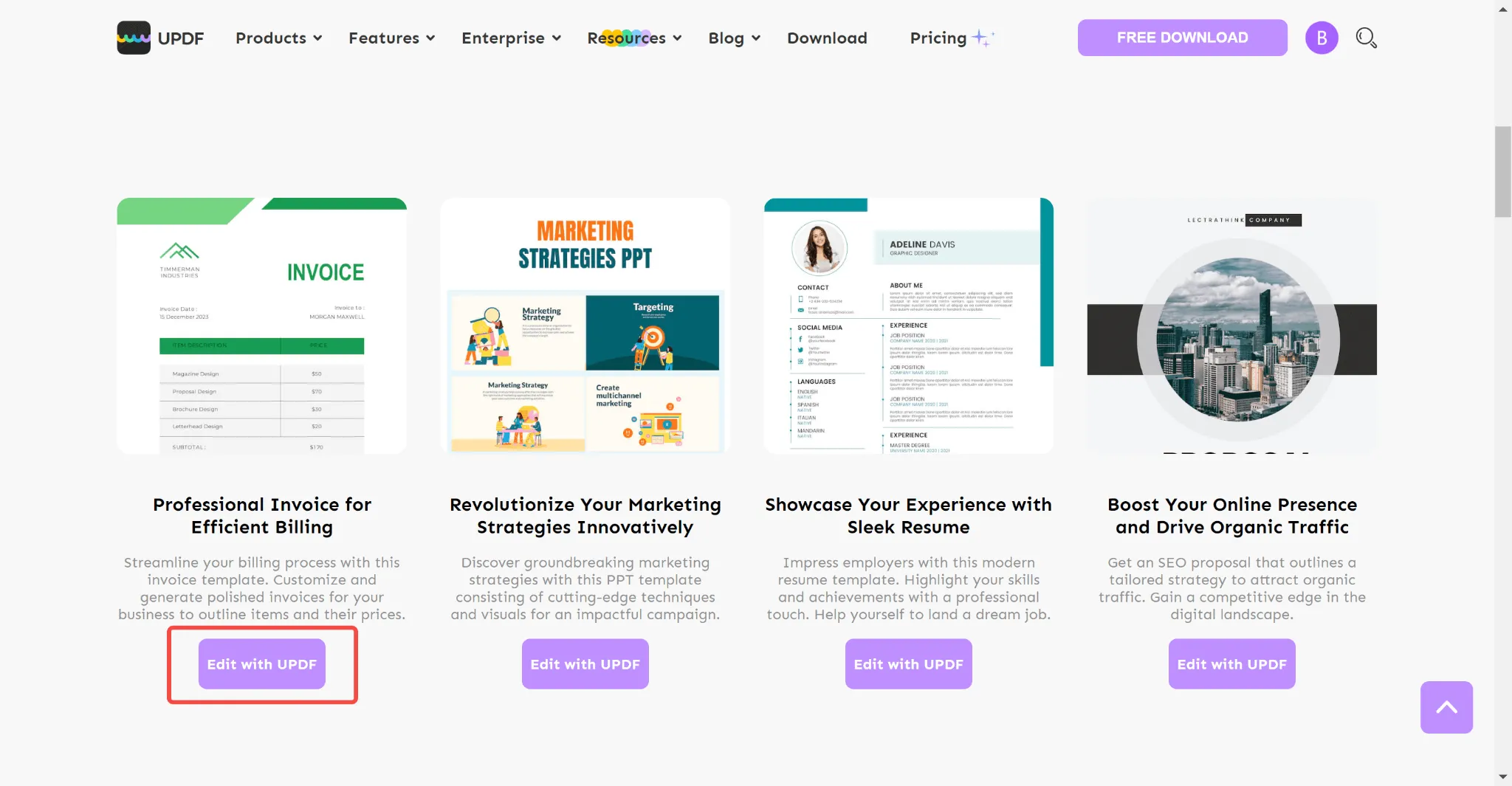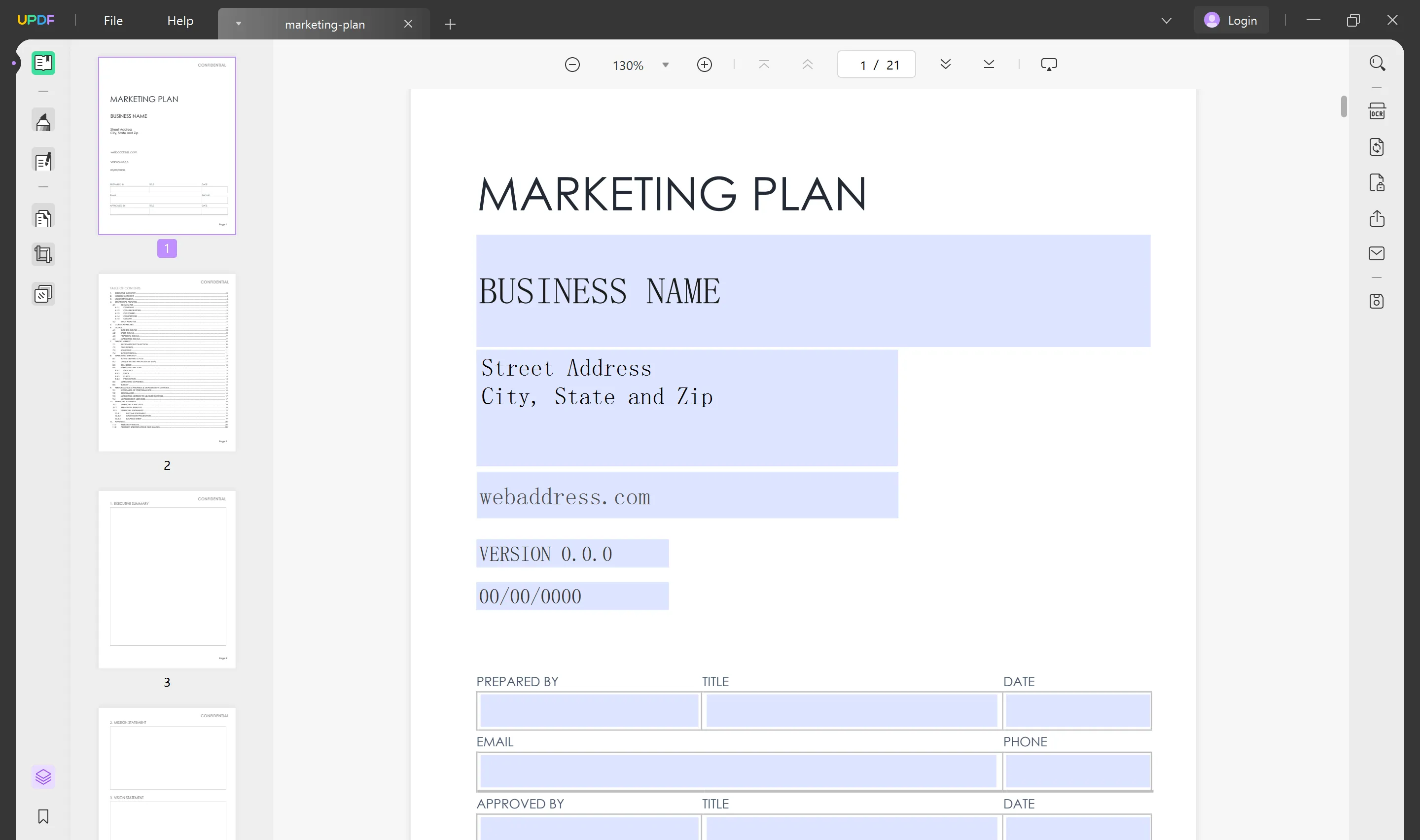Marketing is a multifaceted endeavor that demands skill in handling various responsibilities simultaneously. It requires attention not only to internal operations but also to external market dynamics. Effective coordination with diverse stakeholders, sharing insights, and understanding their extensive feedback are crucial aspects that can only be managed with a marketing brief.
Just when you have a sense of ease, a new marketing campaign or project emerges. How does one manage such a demanding task? One of the most impactful approaches is establishing a well-defined trajectory with concrete objectives.
Keep reading this write-up till the end to know what a marketing brief is and the way you can craft it to guarantee success.
Part 1. What Is A Marketing Brief?
A marketing brief is a concise document that provides an overview of a marketing campaign. It guides marketing teams and stakeholders, outlining the main objectives and strategies to achieve desired outcomes. This document is essential for planning and executing effective marketing initiatives, enabling teams to create impactful messaging.
It also avoids disconnect between different teams and helps them collaborate effectively. Defining the key elements of a campaign helps maximize efficiency and effectiveness, ultimately contributing to the success of marketing efforts.
Part 2. What to Include in A Marketing Brief?
An impactful marketing brief isn't just a random collection of ideas. It is a well-defined strategy from start to end that guides a marketing campaign and ensures its success in the long run. Let's discuss what a quality brief must include:
- Client or Company Overview
- Campaign Purpose, Objectives & Strategy
- Deliverables
- Mandatories
- Timeline
- Budget
- Important Contacts
Ensure you include all of the above aspects in your brief. Once you have, it's time to implement them in your marketing brief with the following guide.
Part 3. How to Write a Marketing Brief - 12 Simple Steps
Step 1: Define the Purpose
Clearly articulate the purpose of the marketing brief, whether it's to launch a new product, promote an event, or enhance brand visibility. It sets the foundation for the entire document.
Step 2: Identify the Target Audience
Define the specific group or segment of consumers that the campaign aims to reach. Research demographic information, such as age, gender, location, and any relevant psychographic details like interests or behaviors. This helps tailor the messaging and strategies to resonate with the intended audience.
Step 3: Set Campaign Objectives
Clearly state the goals and objectives of the marketing campaign, such as increasing brand awareness, driving sales, generating leads, or enhancing customer loyalty. Ensure the objectives are specific, measurable, achievable, relevant, and time-bound (SMART).
Step 4: Craft a Unique Selling Proposition (USP)
Identify and articulate the unique features or benefits of the promoted product or service. Highlight what differentiates it from competitors and why the target audience should choose it. It helps in crafting compelling messaging that communicates the value proposition effectively.
Step 5: Perform a Competitive Analysis
Evaluate the competitive landscape by analyzing key competitors and their strategies. Identify their strengths, weaknesses, and market positioning. This analysis helps identify opportunities for differentiation and develop effective strategies to gain a competitive edge.
Step 6: Do Relevant Market Research
Provide relevant market research findings and consumer insights that inform decision-making. It includes industry trends, customer preferences, and market dynamics. These insights guide creating marketing strategies that resonate with the target audience.
Step 7: Set Creative Guidelines
Outline the creative direction for the campaign, including branding guidelines, visual identity, and tone of voice. It ensures that all marketing materials maintain a consistent look and feel, reinforcing the brand's image.
Step 8: Determine the Right Marketing Channels
Specify the marketing channels and tactics to reach the target audience effectively. It may include digital platforms, traditional advertising, social media, content marketing, influencer partnerships, or events. Choose channels that align with the target audience's preferences and behaviors.
Step 9: Set Key Performance Indicators (KPIs)
Identify the metrics and KPIs that will be used to measure the campaign's success. It could include metrics like website traffic, conversion rates, social media engagement, or customer acquisition. Clearly defining the KPIs allows for effectively monitoring and evaluating the campaign's performance.
Step 10: Ascertain the Budget & Timeline
Include a budget allocation for the campaign and a timeline that outlines key milestones and deadlines. It helps in managing resources and ensuring the timely execution of marketing activities.
Step 11: Assign Responsibilities
Identify the team members responsible for different aspects of the campaign, such as design, content creation, advertising, and analytics. Clearly define roles and ensure effective collaboration and communication.
Step 12: Execute and Evaluate
Share the final brief with the team and execute the campaign according to the established timeline and strategies. Monitor the progress, measure the results against the defined goals, and make necessary adjustments for continuous improvement.
Remember, a marketing brief is a living document that may evolve as you progress through the campaign. Regularly revisit and update it to ensure ongoing alignment with your goals.
Part 4. Customize Your Own Marketing Brief with UPDF Template
The hallmark of a quality brief isn't just correct information; its significance also depends upon the template you choose. An unattractive and haphazard brief template will lead to confusion among your teams and prove to be a hindrance to your goals.
A quality template can only come from quality software, and that's where UPDF steps in. It provides you with an assortment of PDF templates that you can use to craft an excellent brief. UPDF goes beyond just providing templates and helps you edit them with its accurate and advanced editing tools.
Windows • macOS • iOS • Android 100% secure

1. The Incredible Template Library
UPDF has a vast library of PDF templates that you can edit how you craft your briefs. The templates from UPDF improve your workflow significantly and make it more efficient.
2. Impressive Editing Tools:
Any editor is incomplete if it doesn't have the full range of editing tools. Luckily, UPDF has an impressive array of editing tools you can take maximum advantage of. With this capable program, you can effortlessly edit images, text, and links and make your marketing brief compelling.
3. Template Access & Management Across Platforms
UPDF works on all platforms, such as iOS, Android, MacOS, and Windows, allowing you to access and manage your briefs. You can edit PDF briefs on different platforms without paying anything.
Moreover, the program also provides the UCloud feature that lets you save your files on the cloud effortlessly. It is a secure storage that enables you to access your files later whenever you want.
4. Enterprise Version
The UPDF Enterprise Plan brings document and license management to both individuals and companies. It is a game changer for enterprises in the following ways:
- A dedicated dashboard that helps companies manage licenses, members, statutes, and virtual assets easily.
- The system's management flexibility allows you to assign duties in a simpler manner. It also helps you manage the authorization and license status of every user.
- Add as many members as you want, as there are no limits from UPDF. However, you'll need to buy keys for them.
- The Plan can be accessed on three devices, including one desktop (freely choose between Win and Mac) and two smartphones.
5. Convenient Sharing
You can share all your templates easily with just one click via email or link. UPDF allows you to protect your PDF brief templates with a password so only authorized people can access them.
Steps to Edit Marketing Brief Templates in UPDF
Here is a step-by-step guide to editing your brief templates in UPDF.
Step 1: First, choose your desired template from the template library and download it.

Step 2: Download UPDF on your device to edit the templates.
Windows • macOS • iOS • Android 100% secure
Step 3: Now open the template in UPDF and edit it how you like. You can modify both text and images in the file and get a final product that speaks to your marketing project.

Once you have completed these steps, you'll see an impressive brief on your screen. It's now ready to be shared and discussed with your teams.
Conclusion
Marketing briefs are an excellent way of streamlining your marketing strategy and giving it a promising direction. However, it's also crucial to craft them so that they convey all the information clearly and in a convincing manner.
Using software like UPDF can help you transform your briefs, thanks to its extensive set of features. It lets you edit, annotate, compress, and flatten PDF files, making it an excellent choice for crafting marketing briefs. So, download this all-in-one PDF solution today and start creating compelling marketing campaigns like never before.
Windows • macOS • iOS • Android 100% secure
 UPDF
UPDF
 UPDF for Windows
UPDF for Windows UPDF for Mac
UPDF for Mac UPDF for iPhone/iPad
UPDF for iPhone/iPad UPDF for Android
UPDF for Android UPDF AI Online
UPDF AI Online UPDF Sign
UPDF Sign Edit PDF
Edit PDF Annotate PDF
Annotate PDF Create PDF
Create PDF PDF Form
PDF Form Edit links
Edit links Convert PDF
Convert PDF OCR
OCR PDF to Word
PDF to Word PDF to Image
PDF to Image PDF to Excel
PDF to Excel Organize PDF
Organize PDF Merge PDF
Merge PDF Split PDF
Split PDF Crop PDF
Crop PDF Rotate PDF
Rotate PDF Protect PDF
Protect PDF Sign PDF
Sign PDF Redact PDF
Redact PDF Sanitize PDF
Sanitize PDF Remove Security
Remove Security Read PDF
Read PDF UPDF Cloud
UPDF Cloud Compress PDF
Compress PDF Print PDF
Print PDF Batch Process
Batch Process About UPDF AI
About UPDF AI UPDF AI Solutions
UPDF AI Solutions AI User Guide
AI User Guide FAQ about UPDF AI
FAQ about UPDF AI Summarize PDF
Summarize PDF Translate PDF
Translate PDF Chat with PDF
Chat with PDF Chat with AI
Chat with AI Chat with image
Chat with image PDF to Mind Map
PDF to Mind Map Explain PDF
Explain PDF Scholar Research
Scholar Research Paper Search
Paper Search AI Proofreader
AI Proofreader AI Writer
AI Writer AI Homework Helper
AI Homework Helper AI Quiz Generator
AI Quiz Generator AI Math Solver
AI Math Solver PDF to Word
PDF to Word PDF to Excel
PDF to Excel PDF to PowerPoint
PDF to PowerPoint User Guide
User Guide UPDF Tricks
UPDF Tricks FAQs
FAQs UPDF Reviews
UPDF Reviews Download Center
Download Center Blog
Blog Newsroom
Newsroom Tech Spec
Tech Spec Updates
Updates UPDF vs. Adobe Acrobat
UPDF vs. Adobe Acrobat UPDF vs. Foxit
UPDF vs. Foxit UPDF vs. PDF Expert
UPDF vs. PDF Expert







 Delia Meyer
Delia Meyer 
 Enola Miller
Enola Miller 
 Enrica Taylor
Enrica Taylor 
